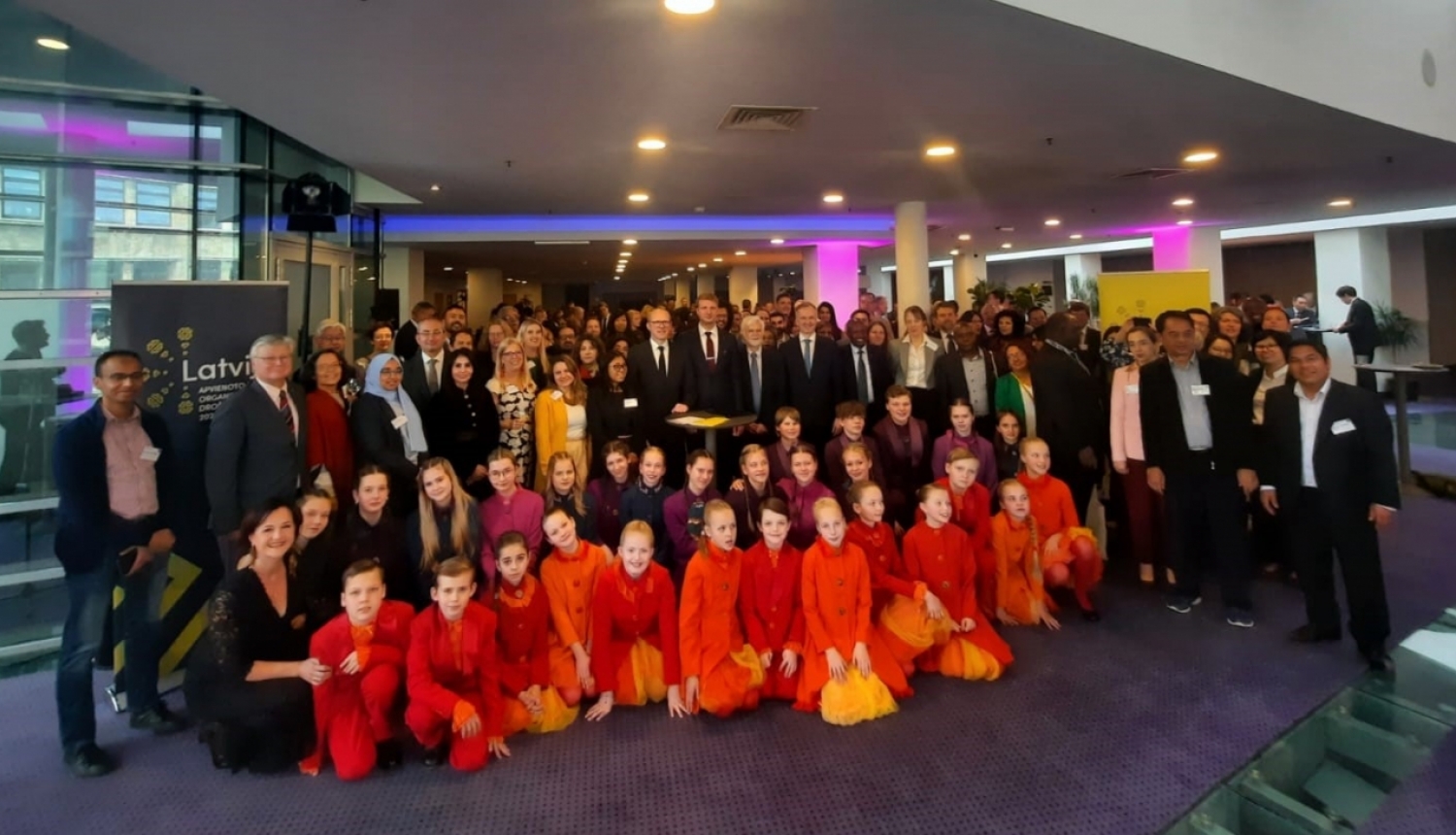On 16 April 2024, the State Secretary of the Ministry of Foreign Affairs, Andris Pelšs, took part in the launch of the Scoping Meeting for the Special Report on Climate Change and Cities by the Intergovernmental Panel on Climate Change (IPCC) in Riga.
In his address to those present, Andris Pelšs underlined that there was no time to waste, and action had to be taken immediately to prevent climate change. He asserted that, to achieve that goal, the people, their livelihoods and nature should be placed in the heart of climate action. The State Secretary also recalled that climate issues should also be seen in close connection with security, and therefore, international co-operation was of critical importance.
The ambition and plans of Latvia to be elected to the United Nations Security Council for the term of 2026–2027 were shared by the Director of the UNSC Task Force at the Ministry of Foreign Affairs, Andrejs Pildegovičs, who reaffirmed Latvia’s commitment to seeking common solutions for climate change, resilience, sustainability, and development.
The Ambassador at Large at the Ministry of Foreign Affairs, Kārlis Eihenbaums, informed the audience about the priorities of Latvia’s climate diplomacy and participation in the United Nations Climate Change Conference (COP29) in Baku.
The Scoping Meeting for the first Special Report on Climate Change and Cities under the IPCC’s seventh assessment cycle is held in Riga from 16 to 19 April by the Ministry of Climate and Energy in association with the Riga City Council and the Intergovernmental Panel on Climate Change. The event brings together about 150 climate scientists and experts from 65 countries worldwide – from Europe, America, Africa, Asia, and Oceania. This is a unique opportunity for Latvia’s sectoral policy makers to understand the role of science in shaping climate policy, and for Latvian scientists – to develop and strengthen international contacts. The purpose of the meeting is to prepare a substantive framework for the Special Report on Climate Change and Cities.
Background information
The IPCC, established in 1988, is a United Nations intergovernmental body; its main task is to assess and provide a comprehensive summary of scientific papers on climate change and offer recommendations to policy makers. The IPPC works in close connection with the United Nations Framework Convention on Climate Change (UNFCCC), and the reports are approved by the conference of the parties of the UNFCCC. The IPCC is a panel of 195 member governments.
In July 2023, during the 59th session of the Intergovernmental Panel on Climate Change in Nairobi, Kenya, election to the IPCC Board was held, at which the nominee of Latvia, Dr Zinta Zommers, was elected Vice-Chair of the Working Group II – Impacts, Adaptation and Vulnerability.
The IPCC scoping meeting in Riga, held with support from the Ministry of Foreign Affairs, is one of the largest events that has taken place in the UN format in Latvia so far.





